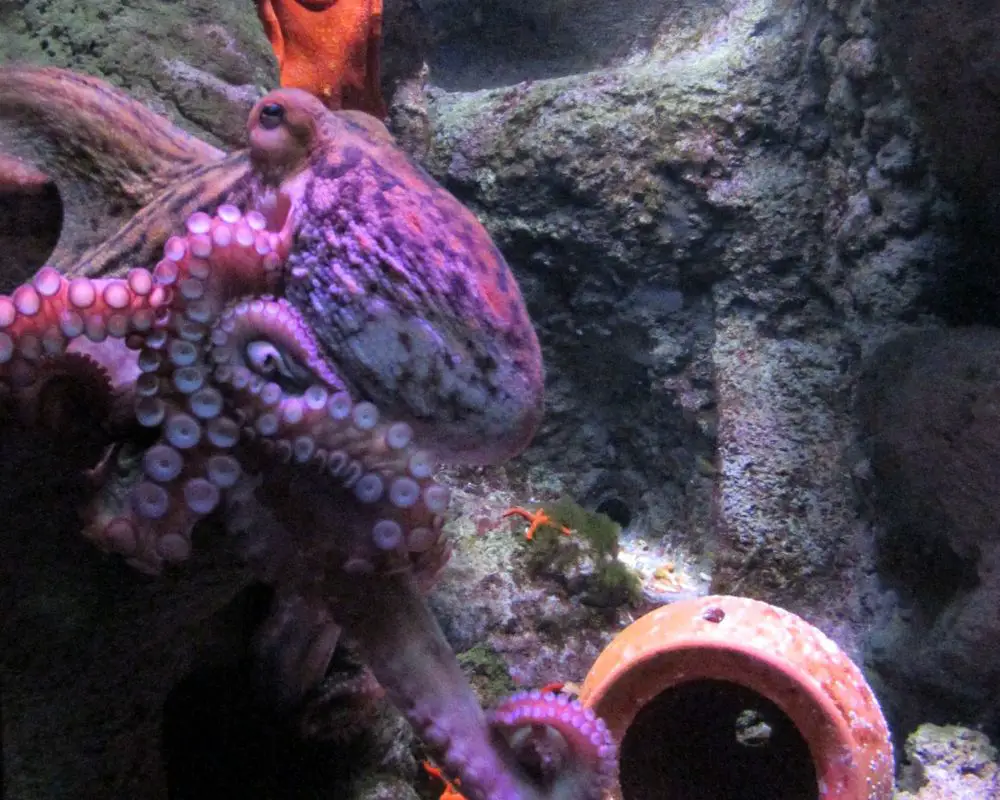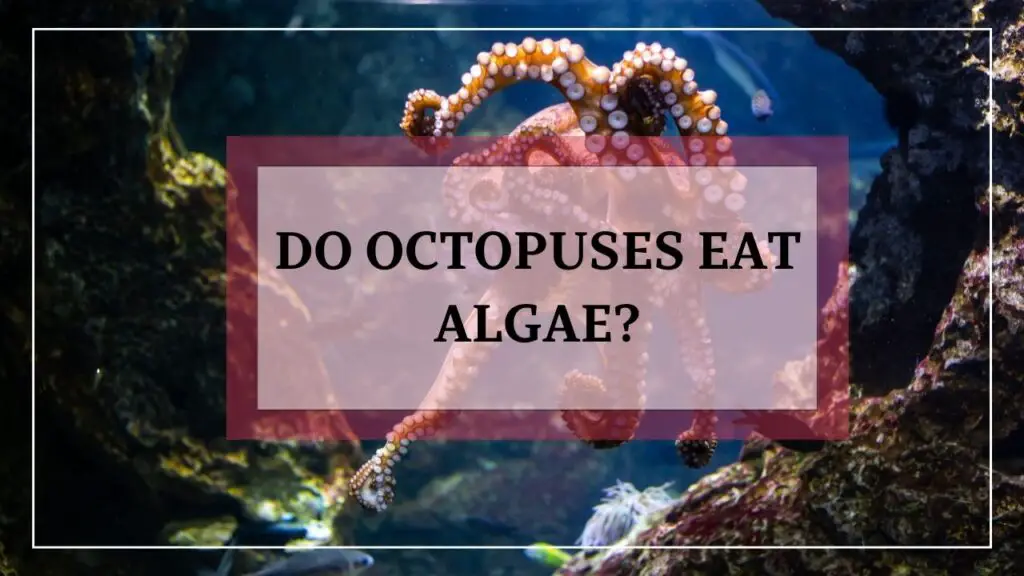Well, today we’re diving deep into the underwater world to answer a fascinating question: Do octopuses eat algae?
So, in short, the answer to our main question is no, octopuses don’t typically eat algae. But don’t worry, there’s a whole world of marine life out there for them to explore and find delicious meals. Let’s dive in together and uncover the secrets of octopus diets!
Octopuses and Algae Interaction

Guess what? Algae aren’t just floating around aimlessly in the ocean. They’re like little architects, creating hiding spots and cozy homes for all sorts of marine critters, including our clever octopus friends. Algae form tangled mats and provide a haven for tiny organisms, creating a bustling neighborhood under the sea.[1]
These green plant-like structures give octopuses the perfect hideouts to play their stealthy games. Imagine an octopus using its incredible camouflage skills to blend in with the algae-covered rocks or seaweed. It’s like a master of disguise, waiting patiently for its next meal to swim by.
Algae: Tasty Treats Or Accidental Bites?
Now, here’s the scoop, my friend. While octopuses may come across algae during their underwater adventures, they aren’t exactly hopping into the ocean with their shopping bags to collect them. Algae aren’t typically on the top of their “yummiest foods” list.
You see, octopuses have a palate that craves protein-rich meals like crabs, mollusks, and small fish. They’re like the action heroes of the ocean, always on the lookout for a high-energy feast. So, while they may accidentally bump into algae during their expeditions, it’s not their go-to source of sustenance.
Oops! Algae Mishaps On Octopuses’ Menus
Here’s a funny twist, my friend. Sometimes, even the mighty octopus can make a culinary mishap! Picture this: an octopus on the hunt, stealthily slinking through the algae-filled waters, focused on its prey. In the heat of the moment, it may snatch up a small fish or crab, along with a mouthful of algae.
It’s like a little surprise salad bar bonus! But don’t worry, it won’t ruin the octopus’s day. These accidental algae bites are simply a side effect of their active exploration, and the octopus will continue on its quest for its protein-packed meals.
Possible Algae Consumption by Octopuses
Sometimes, these clever cephalopods end up with a surprising side dish on their menu. Let’s dive into the fascinating situations where octopuses might accidentally or intentionally chomp down on a little bit of algae.
Oops! Algae Mishaps In Octopus Meals
Picture this, my friend. Imagine an octopus on the hunt, stealthily stalking its prey. It spots a tasty treat, like a small fish or crab, and swiftly captures it in its powerful arms. But here’s the funny part—sometimes, these little prey items can come with a side of algae. It’s like an unexpected bonus for the octopus!
You see, as the octopus gobbles up its meal, it might accidentally ingest some of the surrounding algae. It’s kind of like taking a big bite of a sandwich and realizing there’s a pickle in there. While it’s not intentional, these incidental algae bites happen as a result of the octopus’s focused feeding frenzy.
Algae Cravings: Rare Moments Of Green Delight
Believe it or not, my friend, there have been some fascinating studies and observations showing that octopuses can have a hankering for algae on rare occasions. They might intentionally consume algae for various reasons, like when their preferred food sources are scarce or during certain stages of their lifecycle.
Scientists have observed some octopuses intentionally reaching out and grabbing strands of algae, almost like they’re saying, “I’ll have a taste of that, please!” It’s like a little culinary adventure in the underwater world. These instances, however, are exceptions rather than the norm in the octopus dining experience.
Octopuses: Not Your Everyday Herbivores
So, my inquisitive friend, while there might be a few unusual cases where octopuses decide to nibble on algae intentionally, it’s important to remember that this is not their typical behavior. Octopuses are far from being herbivores who munch on greens all day long. They’re skilled predators with a preference for protein-rich meals like crabs, mollusks, and fish.
These exceptional moments of algae consumption serve as a reminder of the octopuses’ incredible adaptability and their ability to explore different food options when necessary. But at the end of the day, their gastronomic adventures lead them to a wide array of marine delicacies.
FAQs
Do Octopuses Eat Algae As Their Main Source Of Food?
No, octopuses don’t typically rely on algae as their primary food source. They are skilled predators that prefer protein-rich meals like crabs, mollusks, and fish. While they may encounter algae incidentally while hunting, it’s not their go-to meal.
Are There Any Instances Where Octopuses Intentionally Consume Algae?
Yes, there have been rare cases where octopuses have been observed intentionally consuming algae. This might happen when their preferred food sources are scarce or during certain stages of their lifecycle. However, these instances are exceptions rather than the norm in the octopuses’ diet.
Why Is Algae Important In Octopus Habitats If They Don’t Eat It?
Algae play a vital role in octopus habitats by providing hiding places and creating a thriving ecosystem. Algae form tangled mats and offer shelter for small organisms, acting as a bustling neighborhood under the sea. While octopuses may not actively seek algae as food, they benefit from the diverse ecosystem supported by algae and use it as a camouflage tool during their hunting activities.

